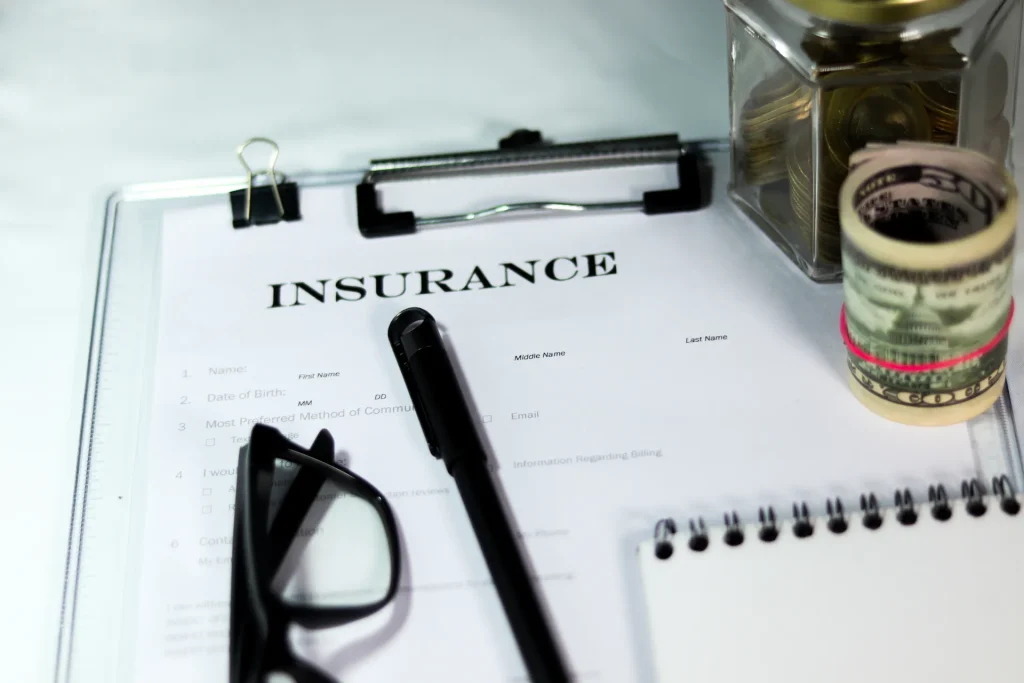My Own Insurance Company Wants a Recorded Statement

During the insurance claim process, it’s common for the adjusters to reach out to you for information. However, that doesn’t mean that the information provided will be used to strengthen your claim. It also doesn’t mean that you are required to provide that information without legal representation.
It’s common to be skeptical when the other party’s insurance party requests a recorded statement from you. But what about your insurance company?
Learn more about the legal options you have when your own insurance company wants a recorded statement and how The Callahan Law Firm can help protect your rights.
What is a recorded statement?
At some point in an insurance investigation, the adjuster may ask you to submit a recorded statement. This is an audio or digital account of your recollection of how the accident occurred.
The adjusters could ask you questions about what happened in your accident, the injuries you sustained, and the damage you’ve suffered.
Recorded statements are supposed to be for your convenience, but it’s more convenient for the adjusters. They can obtain your statement as quickly as possible without waiting for it in writing.
They may also try to manipulate the information you provide in your statement.
Reasons Behind the Request
Gathering information for a claim is a common reason why insurance companies request recorded statements. Adjusters try to gather as much evidence as possible to establish fault for an accident. However, establishing liability is not the only thing they do with the information from a recorded statement. Their goal is to avoid paying out as many claims as possible.
If they could find some information from your recorded statement to use against you, they would.
When you are asked to record, sometimes nerves can take over. It can be harder for you to remember crucial details on the spot. Even the words that you say can be interpreted the wrong way. Adjusters know this, and that’s why they pressure policyholders to submit recorded statements rather than written statements.
Potential Pitfalls of Providing a Recorded Statement
Giving a recorded statement to your insurance company could result in several risks, including:
- Misinformation: Adjusters could take your words out of context or use your words against you later in the process.
- Inaccurate information: You could submit inaccurate information in the heat of the moment.
- Inconsistent facts: Adjusters could manipulate your words and create inconsistencies between what you said and what was later discovered in your claim.
- Extent of future damage: With car accidents, in particular, the injuries can become worse. Adjusters could question the nature of your injuries in the future based on what you say in a recorded statement.
Even though adjusters should be working in your best interest, their loyalty is to the insurance company.

Do You Have to Provide a Recorded Statement?
You are not legally required to provide a recorded statement to someone else’s insurance company, but your own insurer can require a statement from you as a condition of coverage under your policy.
Even if you agree to provide a recorded statement, you should do so after seeking legal counsel. Submitting a recorded statement without seeking legal guidance is still a risk.
Insurance adjusters can still twist your information and use it against you. To avoid this from happening, you need certain skills like:
- Effective communication
- Precision
- The ability to work under pressure
- Knowledge of policyholder rights
An experienced lawyer knows how to use all these skills to advocate for their clients. They can help you have peace of mind as you navigate the claim process.
Benefits of Legal Representation
At the Callahan Law Firm, we fight for the rights of our people. Having legal counsel before submitting a recorded statement helps you avoid certain risks.
We can review the information that you will include in your recorded statement. You can feel safe knowing that all the information in your statement is accurate and concise.
We can also provide clarity in all communications with the adjusters. We can review each statement and ensure that there is no room for misinterpretation.
Having legal counsel can also make the legal process easier. If the insurance adjusters are trying to avoid paying out your claim, your legal team can take a proactive approach to holding them accountable.
They can use their experience to negotiate with the adjusters and protect your policyholder rights.
Importance of Accurate Reporting
One of the greatest benefits is that your legal counsel can assist with accurate reporting. When submitting a recorded statement, clear and truthful statements are key.
Working with legal counsel can help you give clear and accurate statements in your insurance claim.
Talk to an Attorney from the Callahan Law Firm Today
Having to deal with insurance adjusters is intimidating. When your own insurance company wants a recorded statement, reach out to The Callahan Law Firm today.
We take our time to learn and understand our clients. Our highly qualified attorneys give our clients the attention and respect they deserve.
Contact The Callahan Law Firm now for a no-cost review of your case.
FAQ
Do I have to make a statement with the other insurance?
You do not have to make a statement with the other insurance company. Even if the other insurance company asks for a recorded statement, you can still say No.
What is a statement of insurance?
A statement of insurance is an overview of your insurance policy. It includes information like:
- The start date of the policy
- The declarations page
- The type of coverage
- Conditions of the coverage
- Exclusions
Insurance adjusters could use this information to avoid paying compensation. They often review the policy and look for any exclusions or limits that can justify a claim denial.
Why do insurance companies maintain client records?
Insurance companies maintain client records to protect themselves from fraud and to validate the accuracy of insurance claims.
Adjusters can refer to these records to determine what happened and how these events happened. Client records can also be used to establish a policyholder’s coverage.

Michael S Callahan is an attorney and founder of The Callahan Law Firm. He focuses his practice on representing individuals and families in personal injury cases involving motor vehicle and truck accidents, workplace accidents and defective products. With over 25 years of experience, he is dedicated to fighting on behalf of people whose lives have been forever altered by the negligence and carelessness of corporations and individuals. Originally trained as a mechanical engineer, Michael has been practicing law and fighting for justice for those who need it most since 1994. He is board-certified in Personal Injury Trial Law by the Texas Board of Legal Specialization and a member of various esteemed legal associations. Outside of work, Michael enjoys spending quality time with his family, outdoor activities, and continually striving to improve as a trial lawyer and human being.











